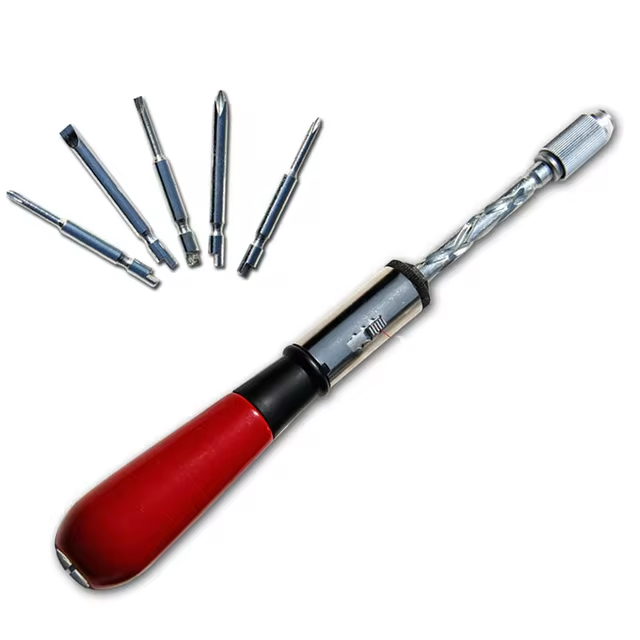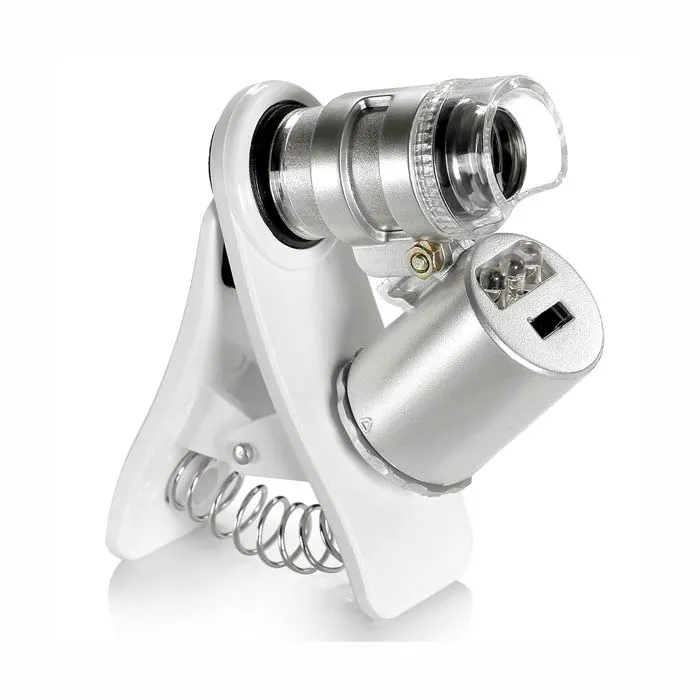
Hex Screwdriver Essentials for Precision Work
Types of Hex Screwdrivers
When selecting a hex screwdriver, knowing the different types available is crucial for making the right choice. Here we delve into various styles, each offering unique advantages depending on the task at hand.
Standard Hex Screwdrivers
Standard hex screwdrivers are the go-to tool for most tasks. They have a straight, fixed shaft with a hexagonal tip designed to fit into the corresponding screw head. This type is highly reliable and comes in various sizes to handle different screw dimensions, perfect for tasks requiring precision.
Ball-End Hex Screwdrivers
Ball-end hex screwdrivers feature a spherical tip, allowing them to engage screws at an angle, up to 25 degrees. This is incredibly useful when dealing with hard-to-reach screws, making work more convenient and faster.
T-Handle Hex Screwdrivers
T-handle hex screwdrivers offer better torque and comfort. They have a long shaft with a T-shaped handle that provides a more substantial grip, improves leverage, and helps apply more force without straining your hand—a great option for stubborn screws.
Powered Hex Screwdrivers
For those looking for speed and efficiency, powered hex screwdrivers are the best bet. They can be either battery-operated or corded, significantly reducing the time and effort needed for screwing tasks. Remember to select one compatible with hex bits to ensure precision work is not compromised.

Essential Features to Consider
When considering the purchase of a hex screwdriver, some features stand out as particularly important. These impact the tool’s effectiveness and user comfort, both critical elements in precision work.
Material and Durability
A hex screwdriver’s performance hinges on its construction material. High-quality steel, such as chrome-vanadium or S2 steel, ensures strength and a longer life span. The durability of a screwdriver means less wear over time, resulting in more accurate work and fewer tool replacements. When you pick up a hex screwdriver, consider if it has a rust-resistant finish. Such finishes protect the tool from corrosion, maintaining its precision edge.
Handle Design for Ergonomic Grip
An ergonomic grip can make a world of difference during extended use. Look for hex screwdrivers with handles that fit comfortably in your hand. A well-designed handle reduces fatigue and improves torque transmission. Materials like rubber or textured plastics offer a non-slip surface, enhancing grip security even when hands are oily or sweaty. Some models even have anti-roll features to keep your tools within reach.
Size Range and Metric vs. Imperial Measurement
Hex screwdrivers come in a variety of sizes to fit various screw heads. It’s essential to have a range of sizes in your toolkit to handle different tasks. Additionally, hex screwdrivers are available in both metric and imperial measurements, matching the prevalent system in your work area or the specifications of the task at hand. Purchasing a set with both systems ensures you’re prepared for any screw you might encounter.

The Role of Hex Screwdrivers in Precision Work
Hex screwdrivers are essential for precision work that requires accuracy and detail. Their unique design allows users to apply exact torque and reach small spaces easily. Here we will explore the various fields where these tools are indispensable.
Electronics
In electronics, precision is paramount. Hex screwdrivers enable technicians to work on devices with tiny screws, such as smartphones, laptops, and other gadgets. The non-slip grip and exact fit prevent damage to delicate components. They are must-haves for repair or assembly work.
Model Building
Model builders value hex screwdrivers for their precision. They allow hobbyists to assemble intricate parts with confidence. The various sizes of hex screwdrivers match the diverse tiny screws found in model kits. The T-handle version is often preferred here for its torque and comfort.
Instrument Assembly
Musical instruments, like guitars or violins, often require hex screwdrivers for assembly and adjustment. A precise fit is essential to avoid damaging the instrument’s fine parts. Ball-end types are particularly useful for reaching awkward angles inside the instrument’s body.
In each of these applications, the hex screwdriver is a tool of choice because of its precision, reliability, and the diverse options available to tackle specific tasks.
Best Practices for Using Hex Screwdrivers
Hex screwdrivers are a vital tool in precision work. Proper usage ensures their longevity and effectiveness. Below are best practices essential for anyone using these tools.
Proper Grip and Technique
The right grip on your hex screwdriver can make a big difference. Ensure your hand wraps comfortably around the handle. Your fingers should naturally align with the tool’s body. Applying consistent pressure while turning is key. Never force the screwdriver; it should turn with ease. If resistance is met, realign the tool and try again.
Maintenance and Care of Tools
Tool care is crucial for performance. Wipe your hex screwdriver with a clean cloth after each use. This removes any debris and prevents rust. Store them in a dry place. Occasionally, apply a drop of oil to the moving parts of your powered screwdriver. Check frequently for signs of wear. Replace worn or damaged tools to maintain precision in your work.
Avoiding Stripped Screws
Stripped screws are a hassle. To avoid them, always match the screwdriver size to the screw head. Insert the tool firmly into the screw, ensuring a snug fit. Turn slowly to feel the screw catching. Never over-torque. If a screw won’t budge, apply penetrating oil and let it sit before trying again. Remember, a little care can save a lot of trouble.
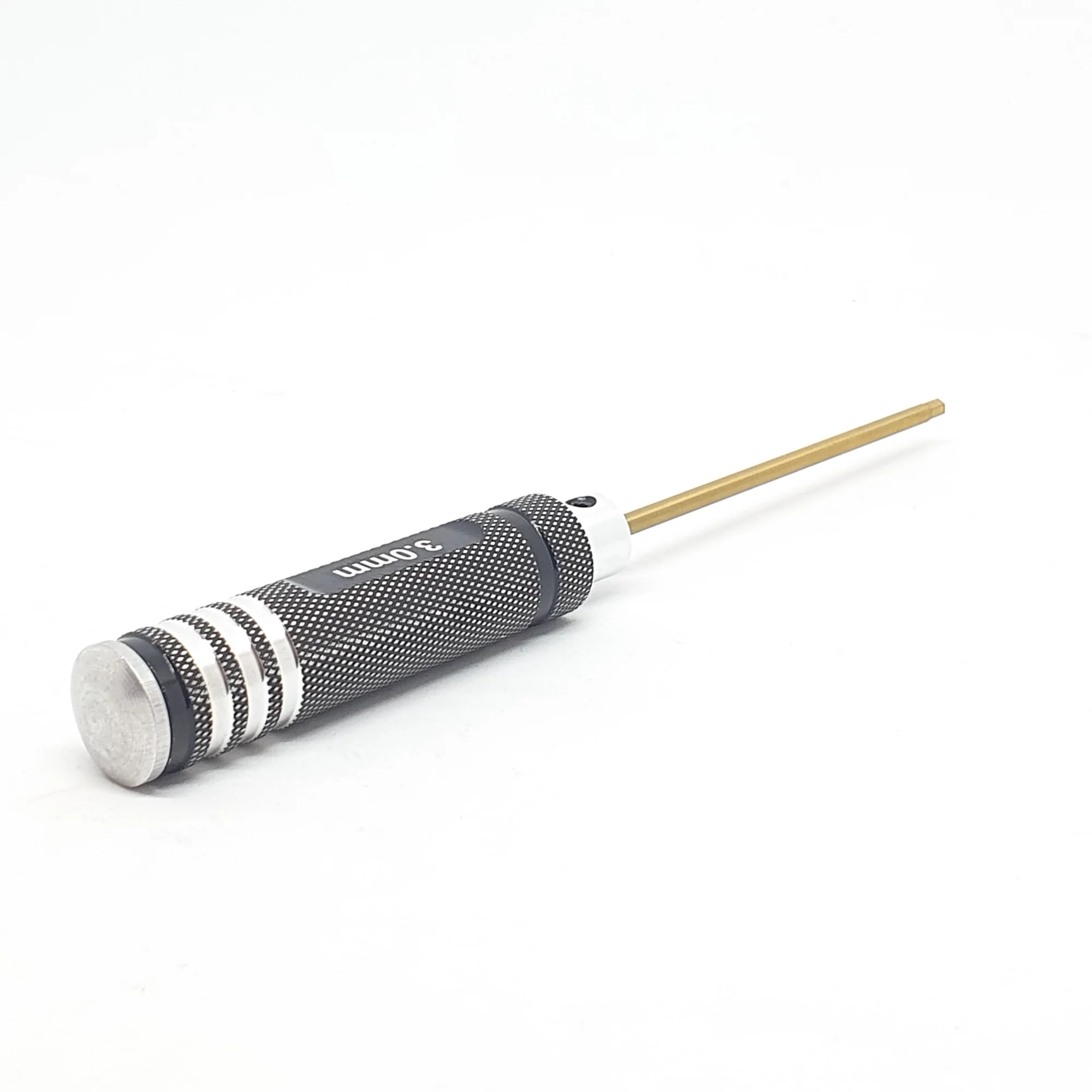
Comparing Hex Screwdrivers with Other Screwdrivers
Choosing the right screwdriver for the job is crucial, especially when working with precision tasks. Hex screwdrivers, known for their unique shape and ability to provide high torque, stand out in certain applications. Here, we compare hex screwdrivers with other common types, highlighting their differences.
Hex vs. Phillips
Phillips screwdrivers have cross-shaped tips and are often found in household and automotive tasks. Hex screwdrivers differ with their hexagonal end, designed to reduce slippage and increase control. While Phillips screwdrivers are great for general use, hex screwdrivers excel when a tighter grip on the screw head is required.
Hex vs. Torx
Torx screwdrivers feature a star-shaped tip and are known for their ability to prevent cam out. They’re commonly used in electronics and automotive industries. One key difference is that hex screwdrivers usually provide better torque on hexagonal screws, which are prevalent in machinery and model building.
Hex vs. Flathead
Flathead screwdrivers, with their simple flat tip, are the most basic type. They fit into single-slot screws but tend to slip more easily than a hex or other types. When comparing them to hex screwdrivers, the latter offers more precision and grip, especially for tasks requiring exact torque.
In summary, each screwdriver type has its unique features, but for tasks demanding specific torque and minimal slippage, hex screwdrivers are the preferred choice.
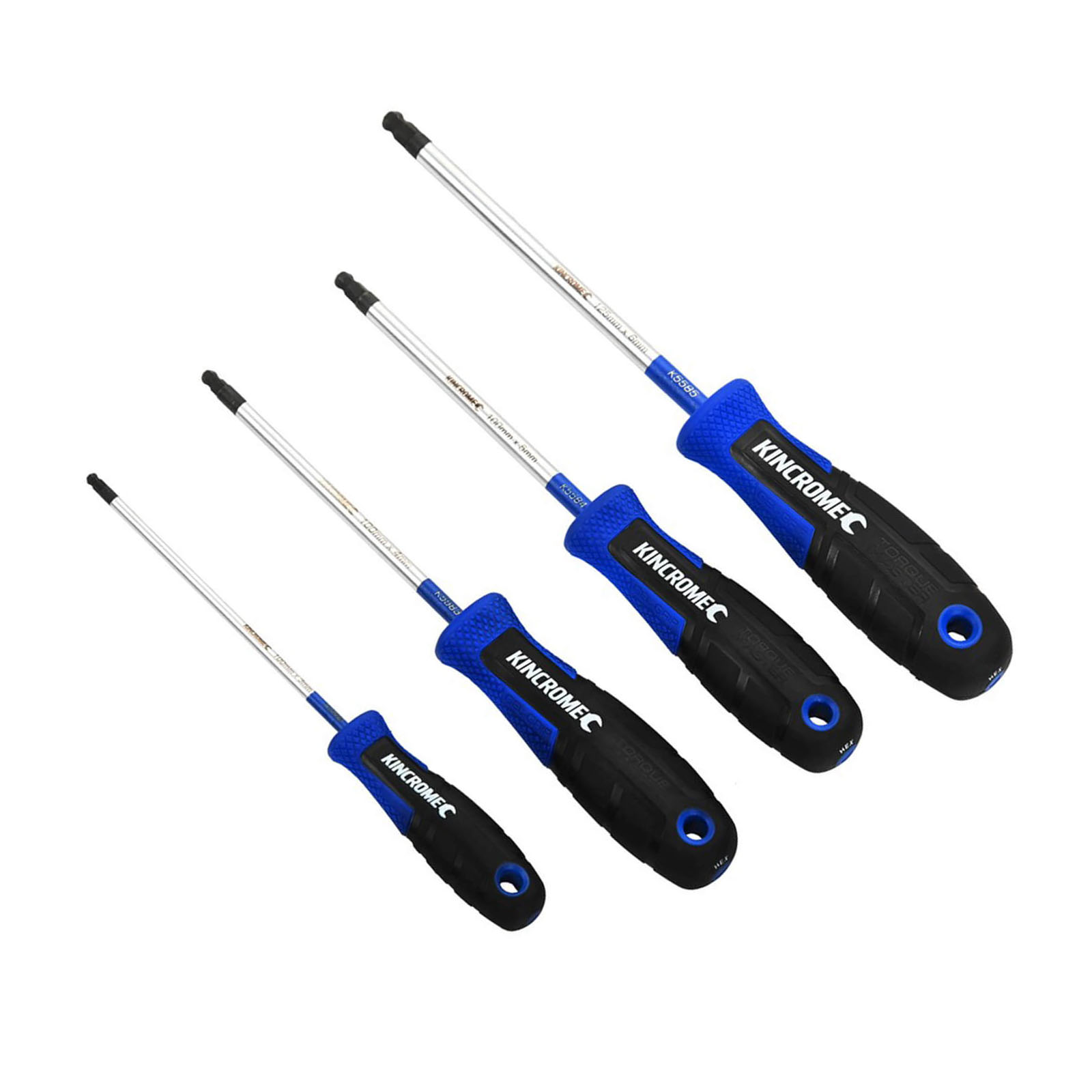
Top Recommended Brands for Hex Screwdrivers
After considering the types, features, and uses of hex screwdrivers, knowing trustworthy brands is vital. Let’s look at both consumer favorites and professional-grade options.
Consumer Favorites
Leading the pack for DIY enthusiasts and homeowners are brands like Wiha, Wera, and Bondhus. Wiha’s German engineering offers durable, reliable hex screwdrivers suited for various tasks. Their ergonomic designs are popular among consumers. Wera is another reputable brand known for its innovative design such as the Kraftform handle which provides comfort and torque. Bondhus stands out with its Protanium steel tools, delivering strength and corrosion resistance.
Professional Grade Options
Professionals demand more from their tools. Brands like HAZET, Facom, and Beta Tools are at the forefront for high-demand tasks. HAZET’s tools boast precision and longevity, essential for constant use. Facom offers a wide range with a focus on user comfort and reliability. Beta Tools is recognized for its high-quality Italian craftsmanship, offering hex screwdrivers that handle tough jobs over extended periods.
Both categories of brands fulfill the need for quality hex screwdrivers that ensure precision work. Whether for personal projects or professional tasks, picking the right brand is an investment in efficiency, accuracy, and reliability.
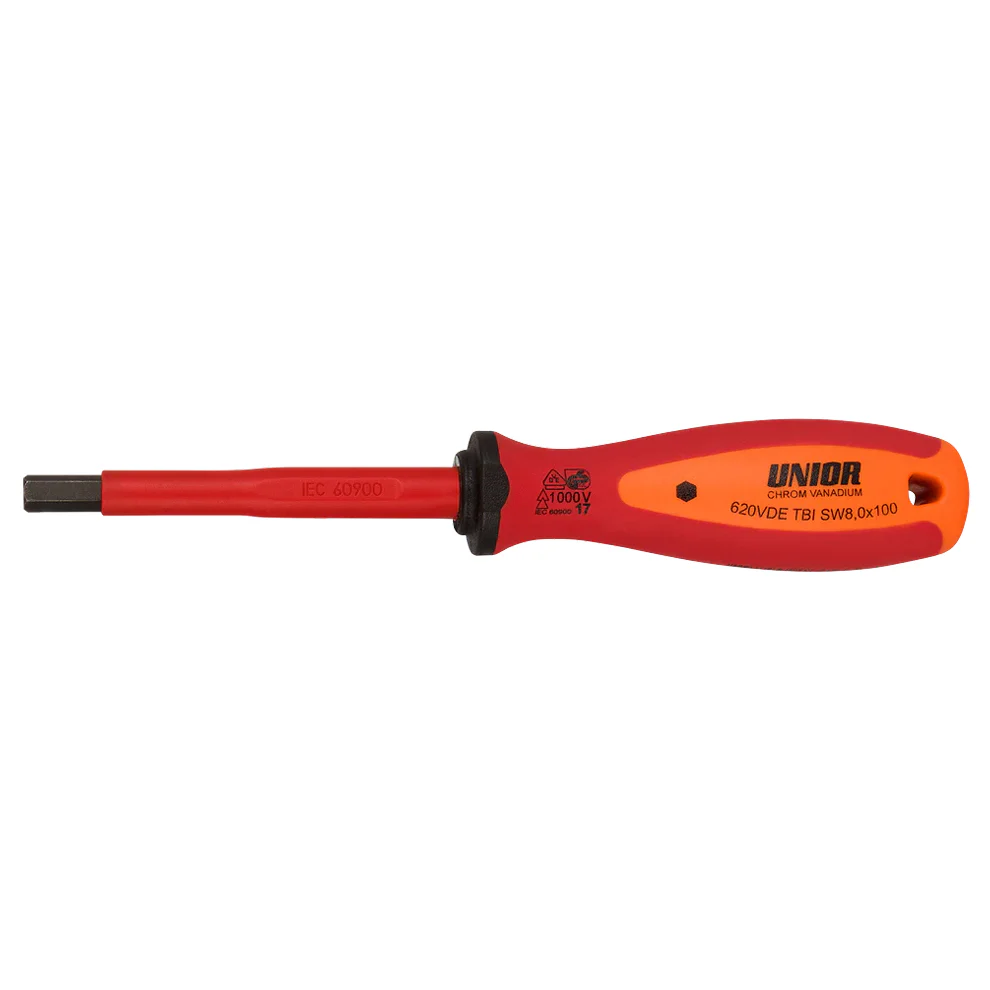
Accessory Tips: Cases, Bits, and Extensions
To make the most of your hex screwdriver collection, investing in the right accessories is key. Cases, bits, and extensions enhance your tool’s utility and ensure longevity. Let’s explore these essential add-ons.
Organizing Your Screwdriver Set
An organized screwdriver set saves time and minimizes frustration. A sturdy case with designated spots for each tool is best. It protects your screwdrivers from damage and loss. Look for cases that are compact, durable, and easy to carry. Some cases have clear labels, making it easy to grab the right size quickly.
Choosing the Right Bits
The right bit can make all the difference. With a wide range of bit options, ensuring compatibility and precision is crucial. Choose bits made from high-quality steel for durability. Consider a variety with both metric and imperial sizes to cover all bases. For specialty tasks, look into bits with unique shapes, like the ball-end for angled reach.
When to Use Extensions
Extensions are a boon for reaching screws in deep or narrow spaces. Use them when your standard hex screwdriver’s length isn’t enough. They come in various lengths and are handy in situations where other tools fail. Remember to securely attach the extension to your screwdriver to maintain precision and safety while working.
